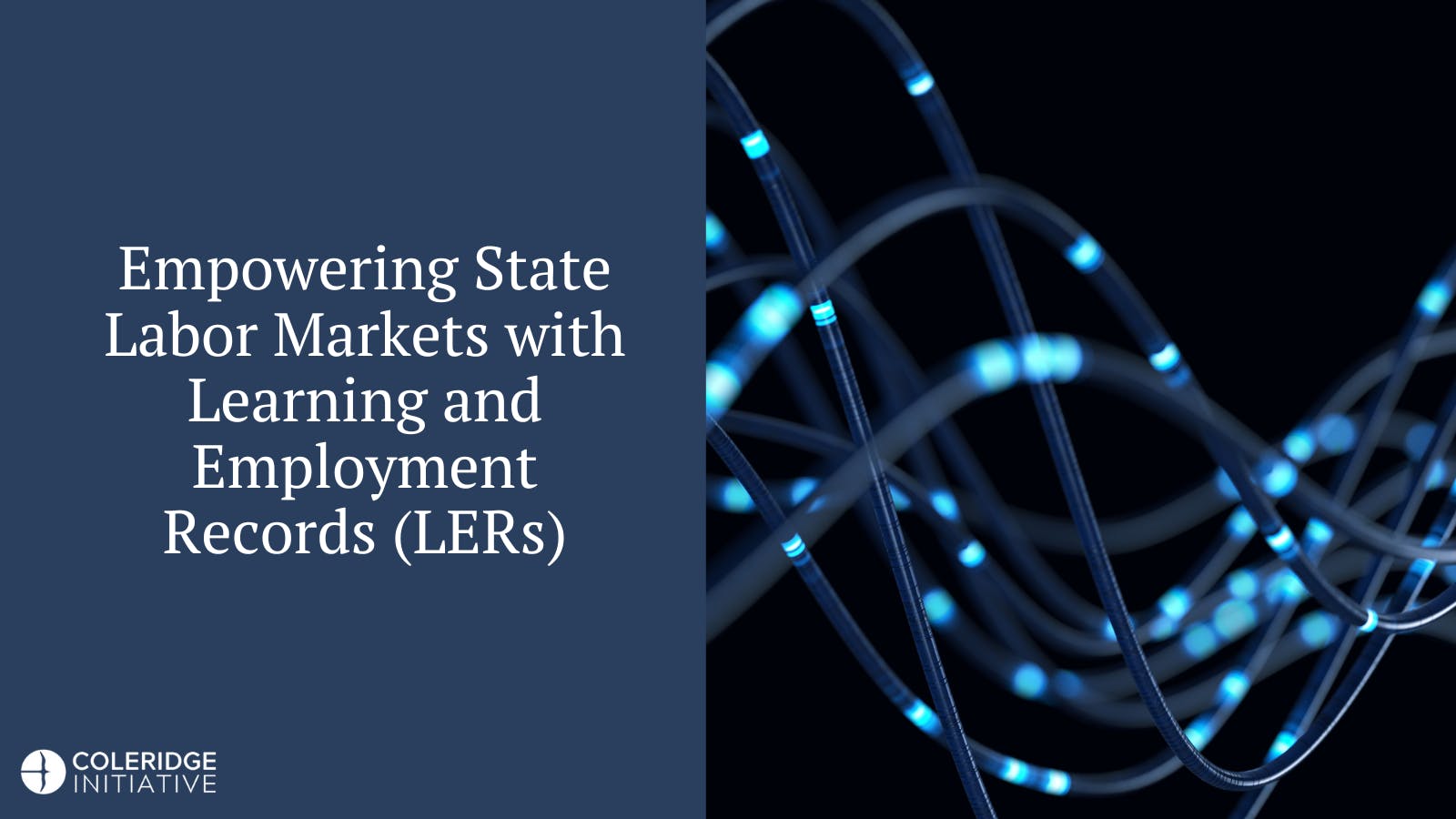
06 Mar 2024
Empowering State Labor Markets with Learning and Employment Records (LERs)
In the rapidly evolving labor market, states face the dual challenge of adapting to technological advancements and meeting the dynamic needs of employers and job seekers. Traditional methods of documenting and communicating an individual's skills and experiences, such as resumes and transcripts, are proving inadequate. Learning and Employment Records (LERs) offer a promising solution to these challenges. This blog delves into the benefits and challenges associated with implementing LERs, with a focus on the pivotal role of state administrative data.
The Promise of LERs
LERs are digital records that provide a comprehensive and verifiable account of an individual's educational achievements, skills, work history, and experiences. They are designed to be accessible, portable, and capable of capturing a wide array of learning and work-related experiences. The LER ecosystem, defined by robust data systems and the collection of skills at the individual, industry, and macro labor market levels, gives better insight into the demand and supply of skills. The shift towards a more skills-based approach to job matching addresses common labor market challenges such as frictional and structural unemployment, mismatching, underemployment, and asymmetric information.
Benefits to States
Enhanced Job Matching: LERs can significantly improve the efficiency of job matching by providing employers with precise and reliable information about job seekers' skills and experiences. This leads to better employment outcomes and a more dynamic labor market.
Economic Efficiency: By facilitating a more transparent and responsive job market, LERs contribute to overall economic efficiency. They enable individuals to better understand and navigate the labor market, pursuing education and skills development opportunities that align with market demands. LERs can help shift the narrative from job creation to career creation.
Utilization of State Administrative Data: States have made significant investments in building and maintaining comprehensive data systems. The LER ecosystem can leverage this existing infrastructure, enhancing the accuracy, reliability, and depth of the records. This not only maximizes the use of state resources but also supports the development of a more informed and adaptable workforce.
Challenges for States
Data Privacy and Security: Implementing LERs requires careful consideration of data privacy, consent, compliance, and security. States must develop robust solutions to ensure that the use of administrative data respects individual rights and adheres to legal and ethical standards.
Standardization and Interoperability: To effectively integrate administrative data from various sources into LERs, states face the challenge of standardizing data formats and ensuring interoperability among different systems.
Data Enhancement: States must also consider how to enhance their administrative data to support the specific needs of LERs. This includes identifying and documenting skills in both education and workforce data, which may require adjustments to data collection and reporting practices.
Moving Forward: Recommendations for States
To overcome these challenges and fully realize the benefits of LERs, states should consider the following recommendations:
Develop Strong Governance Frameworks: Establish robust governance frameworks and data rights legislation to support the effective use of LERs. This includes creating mechanisms for continuous feedback between educators and employers to ensure that educational programs remain aligned with labor market needs.
Adopt Technical Solutions: Implement technical solutions that adhere to data privacy and security requirements, incorporate identity resolution protocols, and ensure data quality. This will facilitate the efficient and secure integration of state administrative data into LERs.
Foster Collaboration: Encourage collaboration between government agencies, educational institutions, employers, and technology providers to address common challenges and share best practices for implementing LERs.
Engage in Continuous Research and Evaluation: Support research and evaluation efforts to assess the impact of LERs on the labor market and identify opportunities for improvement. This includes exploring innovative approaches to data linkage, skills identification, and system optimization.
LERs offer a transformative solution to many of the challenges facing state labor markets. By leveraging existing state administrative data and addressing key implementation challenges, states can enhance job matching, improve economic efficiency, and support the continuous development of the workforce. The journey toward implementing LERs will require collaboration, innovation, and a commitment to addressing the needs of all labor market participants.
Read the White Paper: Bridging Gaps in the Labor Market: The Role of Learning and Employment Records and the Data Infrastructure Needed to Support Them.